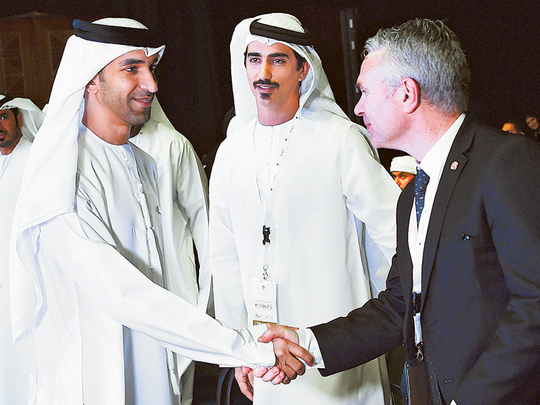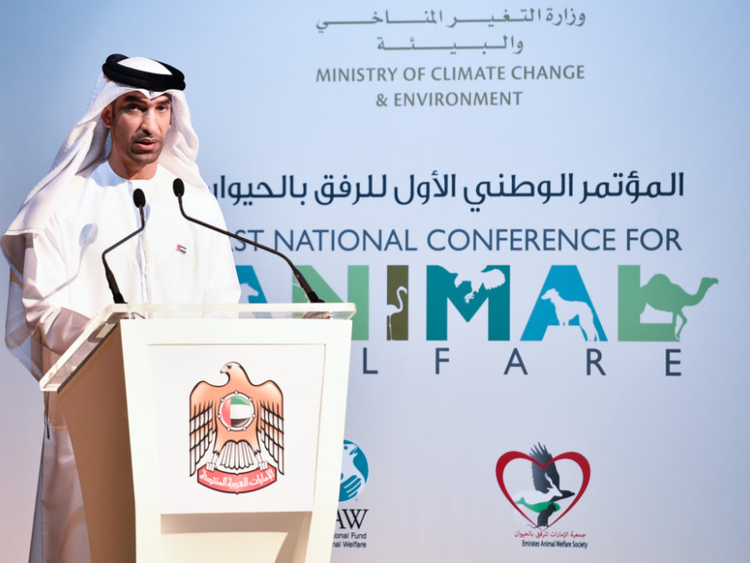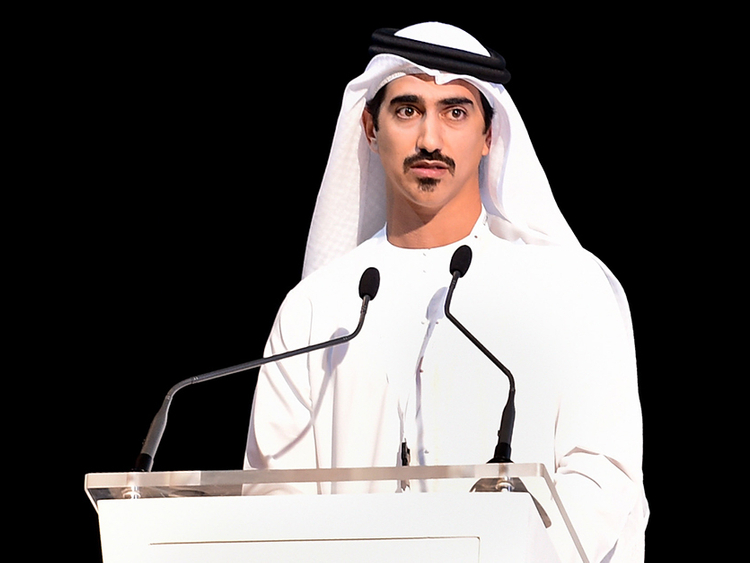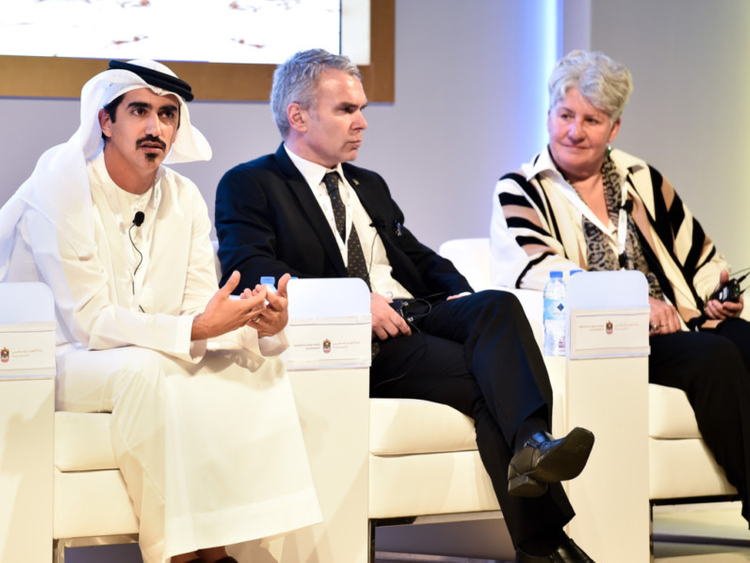
Dubai: The UAE federal government is moving towards new measures that will protect animal welfare on farms and in the wild and everything in between, delegates heard at the first National Conference on Animal Welfare in Dubai on Wednesday.
Keynote speaker Dr Thani Al Zeyoudi, Minister of Climate Change and Environment, said the inaugural conference is a first step toward developing a national animal welfare strategy in keeping with the great importance placed on the preservation of animals and environment by the late Shaikh Zayed Bin Sultan Al Nahyan since 1971.
The new strategy will incorporate a raft of existing laws that guide animal husbandry and protect the environment.
“We believe that preserving animals is part of our religion — we must follow the path of our civilisation and values,” Al Zeyoudi said on the first day of the two-day conference at Dubai World Trade Centre.
Issues being explored at the conference as part of a new national strategy include land and sea transport of domestic livestock, slaughterhouses operations, wild animals as well as regulations regarding stray dogs and animal fighting.
Al Zeyoudi said a new national strategy will be building on a draft law passed in June by the Federal National Council which bans people living in the UAE from owning dangerous, endangered animals such as tigers and apes as well as questionable domestic animals such as pitbulls and mastiffs.
“We expect to come up with outcomes such as a national plan that will involve all national stakeholders,” Al Zeyoudi said.
Dr Majid Al Qasimi, director of Animal Health and Development Department with the Ministry for Climate Change and Environment, said he had high hopes for two days of discussions that would “analyse the needs to develop a national policy”.
Regardless of whether animals in the UAE are for food production or pets for companionship, Al Qasimi said a “national action plan will activate the humane applications” to better the welfare of animals.
Dr Matthew Stone, deputy director-general of the World Organisation for Animal Health (known as OIE), is working with the ministry as part of a regional animal welfare push by his global animal standards organisation.
“Our use of animals does carry an ethical responsibility to ensure the welfare of such animals to the greatest extent practicable,” Stone told delegates.
Improving animal welfare has shown to boost “productivity and food safety”, he said.
Stone lauded the UAE for hosting its first animal welfare conference, noting that it is a first for the region.
“I congratulate the UAE on this initative,” Stone said, noting that a draft animal welfare outline has been prepared by his organisation as part of its bid to help regions implement better treatment of everything from domestic animals to stray dogs.
Cindy Milburne, senior adviser with the International Fund for Animal Welfare (Ifaw), is a 40-year veteran in the global fight for better treatment of animals and said that public sentiment now overwhelmingly sides with animals.
Milburne cited a 2015 survey by Mintel in the UK in which “74 per cent of British citizens thought that good animal welfare standards reflected the ethics of a food company… 52 per cent said they would boycott a company if they felt animal welfare standards were poor”.
She lauded the UAE for taking measures to protect animals that are vulnerable both on the farm and in the wild, noting that “the keeping of dangerous animals and exotic pets Is a problem in the region”.
Islam calls for kindness to animals
Dr Salem Al Doobi, head of guidance with the Sharjah Government, told delegates that Islamic teachings and Quranic verses make it very clear that animals must be treated kindly.
“There are verses where the Almighty stressed the importance of being kind to animals. This is to show the importance of animals in our lives,” he said. “Harming animals may take humans to the lowest places in religion.”
Al Doobi said that animals that are to be slaughtered should be properly fed and be given proper transportation facilities, adding that those who neglect animal welfare should be punished by decision makers in the country.
Meanwhile, a new draft law passed by the Federal National Council in June answers just such calls for punishment against those who commit offences against animals.
Portions of the draft law would be considered for the new national animal welfare strategy.
The draft law includes tough penalties for offenders of up to life imprisonment and/or a Dh1 million fine.
Those who use an animal to attack people and the assault causes death will face life imprisonment. In the event the attack causes a disability, a prison term of up to seven years will be imposed. If other minor injuries are inflicted, a prison term of not more than a year and a fine of up to Dh10,000 will be given, according to the new bill.
Under the new law, those who use animals to terrorise people will face a jail term and/or a range of fines from Dh10,000 to Dh400,000.
In addition to banning the unlicensed ownership of these wild and other dangerous animals, the law also outlines stricter records of wild or dangerous domesticated or undomesticated animals. It also calls for all imported animals to be registered and carry official certificates issued by UAE vets.















